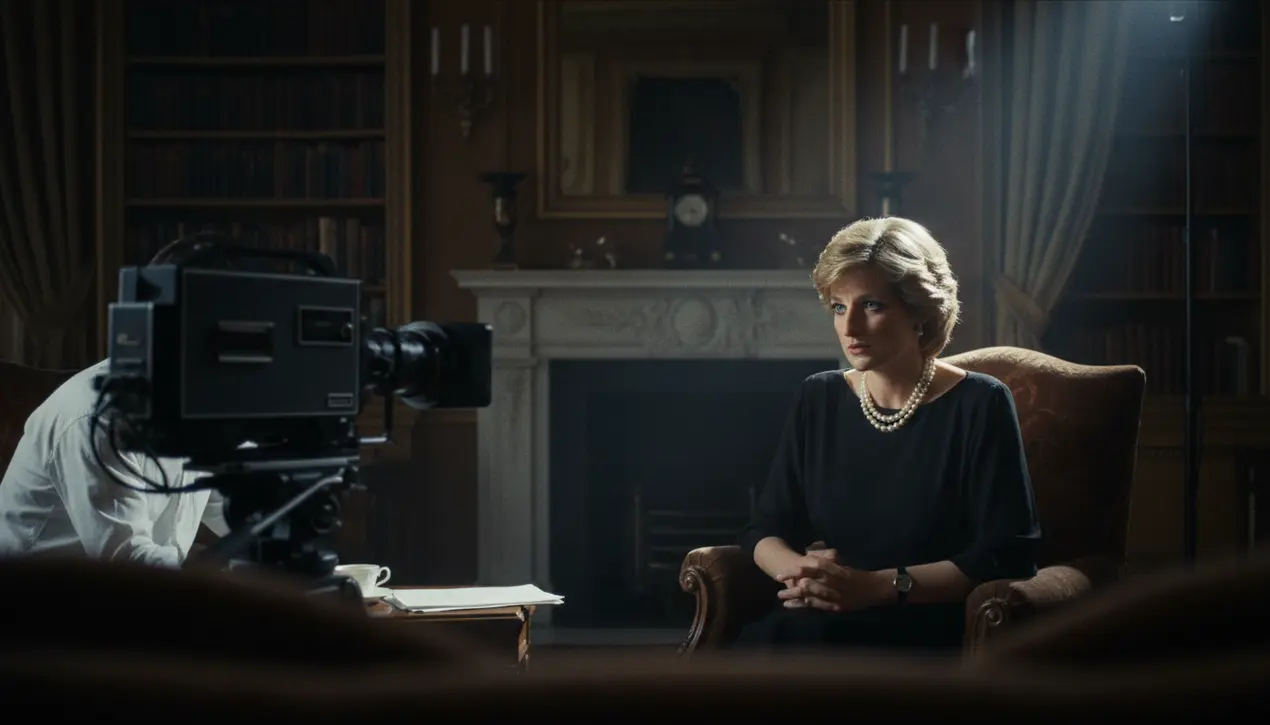
Entertainmentcelebrities
Princess Diana's 1995 interview shocks the monarchy.
LI
Lily Harper
15 hours ago7 min read
The bombshell dropped not with a whisper, but with the poised, devastating clarity of a prime-time confessional, and the monarchy would never look the same. On a November evening in 1995, Princess Diana, the People's Princess, sat before a global audience of 20 million—a figure rivaling the season finale of any must-watch drama—and in an unprecedented hour-long interview, meticulously dismantled the fairy-tale facade the Palace had so carefully constructed.This wasn't just a news event; it was the most gripping, tragic, and glamorously raw episode of a royal saga the world had ever witnessed. With the poise of a Hollywood A-lister and the heartbreaking honesty of a woman pushed to her limit, Diana admitted to adultery with James Hewitt, a cavalry officer, framing it not as a salacious affair but as an escape from a cold, isolating marriage where she felt 'deep, deep, profound sadness.' She didn't stop there; she offered a graphic, unvarnished account of her three-year battle with bulimia, a cry for help from within the gilded cage of Kensington Palace, describing it as a 'symptom of what was going on in my marriage. ' And then came the line that sent seismic shocks through the establishment: her quiet certainty that she would never be queen, a statement that was less an admission of defeat and more a declaration of independence, a strategic move that redefined her role from future queen consort to a global humanitarian icon operating outside the system.The fallout was immediate and vicious. Buckingham Palace was thrown into a state of controlled panic, with courtiers reportedly 'reeling' from the betrayal.The 'War of the Waleses,' once confined to tabloid speculation, was now out in the open, a public relations nightmare from which the House of Windsor would struggle to recover. Pundits and royal commentators scrambled to analyze the interview's long-term impact, comparing its cultural resonance to the abdication crisis of 1936, but this was different—this was played out in living color, with a star the public adored.The public's sympathy overwhelmingly swung towards Diana, the glamorous, wounded mother who had been failed by an archaic institution, while Prince Charles was cast as the cold, unfaithful villain. The interview didn't just expose the cracks in the monarchy; it took a sledgehammer to its very foundation, forcing a reluctant institution into a painful, and ultimately incomplete, process of modernization. It was a masterclass in public narrative control, a red-carpet moment of brutal truth that forever changed the relationship between the press, the public, and the palace, proving that in the battle for hearts and minds, a single, perfectly framed confession could be more powerful than a thousand years of tradition.
#featured
#Princess Diana
#Charles
#monarchy
#interview
#adultery
#bulimia
#British royal family
Stay Informed. Act Smarter.
Get weekly highlights, major headlines, and expert insights — then put your knowledge to work in our live prediction markets.
Related News
Comments
Loading comments...
© 2025 Outpoll Service LTD. All rights reserved.